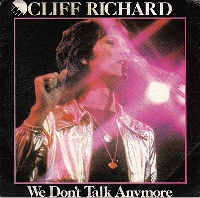Related Research Articles
This is a list of the number one hits in the UK Albums Chart, from its inception in 1956 to the present. The sources are the Record Mirror chart from 1956 to the end of 1958, the Melody Maker chart from November 1958 to March 1960, the Record Retailer chart from March 1960 to March 1972 and the Music Week chart from then onwards. In January 1989 the compilation album chart started, and compilation albums were excluded from the main chart.

The ARIA Charts are the main Australian music sales charts, issued weekly by the Australian Recording Industry Association. The charts are a record of the highest selling songs and albums in various genres in Australia. ARIA became the official Australian music chart in June 1988, succeeding the Kent Music Report, which had been Australia's national music sales charts since 1974.

"You Win Again" is a song written by Barry, Robin and Maurice Gibb and performed by the Bee Gees. The song was produced by the brothers, Arif Mardin and Brian Tench. It was released as the first single on 7 September 1987 by Warner Records, from their seventeenth studio album E.S.P. (1987). It was also their first single released from the record label. The song marked the start of the group's comeback, becoming a No. 1 hit in many European countries, including topping the UK Singles Chart—their first to do so in over eight years—and making them the first group to score a UK No. 1 hit in each of three decades: the 1960s, 1970s, and 1980s.

"We Don't Talk Anymore" is a song recorded by Cliff Richard, written by Alan Tarney and produced by the Shadows' rhythm guitarist, Bruce Welch. It was released in 1979 as a single and reached number one in the UK Singles Chart in August 1979, remaining there for four weeks, Richard's tenth UK number one and his first since "Congratulations" in 1968.

"Woman in Love" is a song performed by Barbra Streisand and taken from her 1980 album Guilty. The song was written by Barry and Robin Gibb of the Bee Gees, who received the 1980 Ivor Novello award for Best Song Musically and Lyrically. It is her fourth of four Platinum records, and is considered her greatest international hit.
The Christmas number one single is a single that reaches number one on the national pop music charts in the week in which Christmas Day falls. It is primarily a pop culture phenomenon in the United Kingdom and Republic of Ireland.
The Adventures were a Northern Irish rock/pop band, formed in Belfast in 1984 who had a number of hits during the 1980s and early 1990s.

Whispering Jack is the twelfth studio album by Australian adult contemporary pop singer John Farnham. It was produced by Ross Fraser and released on 29 September 1986, peaking at No. 1 on the Australian Kent Music Report albums chart. Whispering Jack became the second-best-selling album in Australia, behind only Meat Loaf's album Bat Out of Hell, and the highest-selling album in Australia by an Australian artist―24× platinum, indicating over 1.68 million copies sold; it remains the third-best-selling album of all time in Australia, as Shania Twain's Come On Over eventually eclipsed it. It spent 25 weeks at the No. 1 spot on the albums chart during 1986–1987, it was awarded the 1987 ARIA Award for Album of the Year, and it was the best-charting album for the decade of the 1980s in Australia. It was the first Australian-made album to be released on compact disc within Australia. One of Farnham's biggest hits, "You're the Voice", was issued as the lead single from the album and peaked at No. 1 on the Kent Music Report singles chart.

The discography of Welsh rock and roll singer Shakin' Stevens consists of twenty studio albums, 23 compilation albums, sixty-nine singles, three box sets, five video albums and thirty-seven music videos. Although the singer enjoyed his greatest period of success throughout the 1980s while recording for Epic Records, during the 1970s he was the lead vocalist for Shakin' Stevens and the Sunsets and had records issued by a variety of labels including Parlophone, CBS and Polydor in the UK and Pink Elephant and Dynamite in Europe.

The discography of Australian musician, singer-songwriter, painter and television personality Rolf Harris consists of 30 studio albums, 2 live albums, 4 compilation albums, and 48 singles. He often used unusual instruments in his performances: he played the didgeridoo and the stylophone and is credited with the invention of the wobble board. Harris also collaborated with other artists, including Kate Bush, Rick Parfitt, and The Wiggles.

The albums discography of English singer Cliff Richard consists of 49 studio albums, seven soundtrack albums, 11 live albums, three cast recording albums, 17 mainstream compilation albums, one remix album, 12 box sets, eight gospel compilation albums and 47 EPs. It also includes numerous budget/mid-price compilation albums, repackaged albums, and foreign compilation albums.

The singles discography of English singer Cliff Richard consists in excess of 200 singles, of which 159 singles have been released in the UK in varying vinyl, CD, cassette and digital formats. Listed alongside the UK singles in the discography below are a further 20 singles which were released in other territories, as well as 22 singles which were sung in German and only released in German-speaking countries.

"You Weren't in Love with Me" is a song by Australian singer-songwriter Billy Field. It was released in July 1981 as the second and final single from his debut studio album, Bad Habits. The song peaked at number one on the Australian Kent Music Report and entered the top 30 in New Zealand. At the APRA Music Awards of 1982, the song won Most Performed Australasian Popular Work.